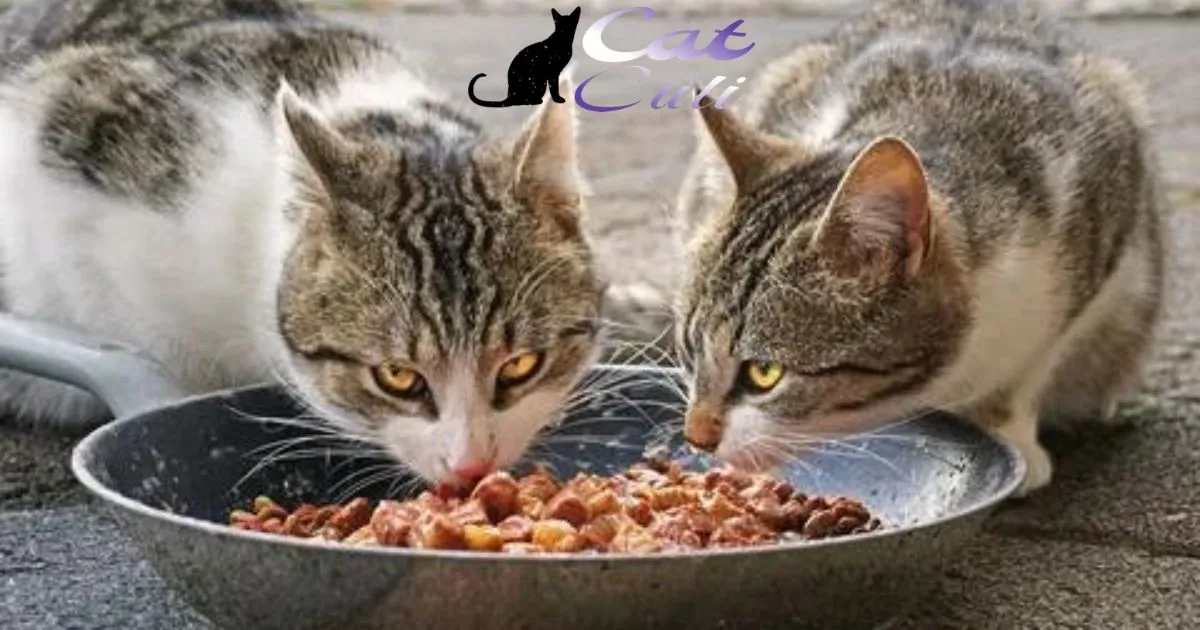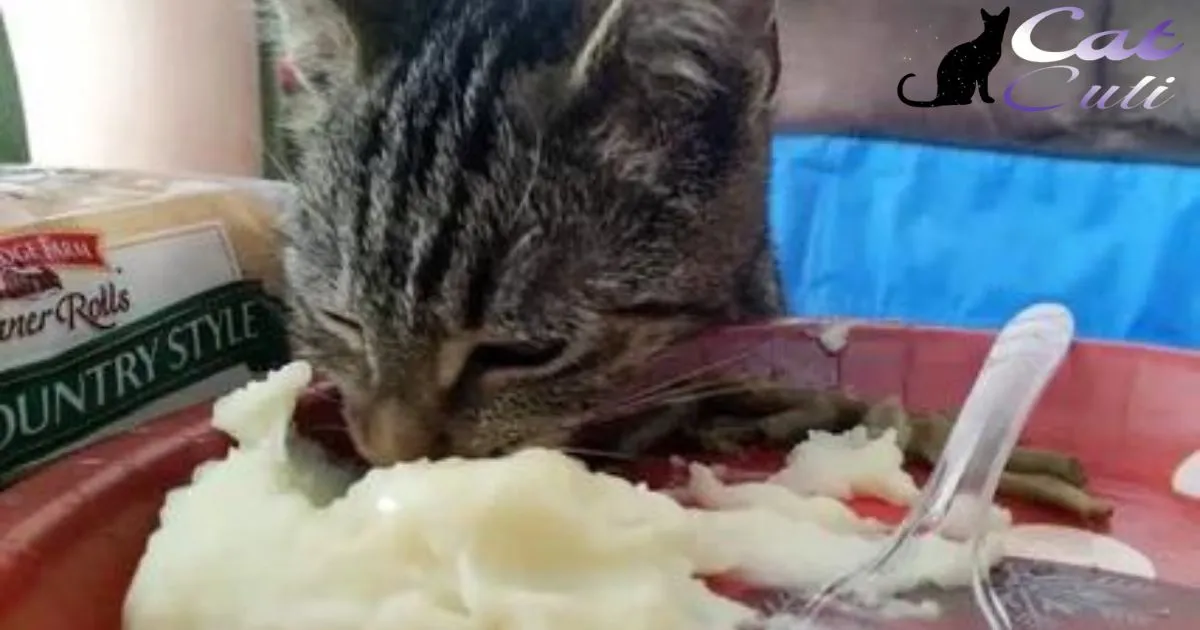Cats can exhibit some peculiar behaviors that may seem strange or confusing to their owners. One common feline quirk involves a cat sitting, lying, or otherwise lingering near their food bowl even when it is empty. This activity invites the question – why does my cat sit by her food bowl?
There are several possible explanations for this behavior. To better understand the motivation, it helps to have some background on a cat’s innate drives. Feeding time is deeply ingrained as a rewarding event for cats. Domestic cats retain strong ancestral urges to hunt for food at regular intervals. So a cat stationed by her bowl may be anticipating her next satisfying meal.
A cat’s perception of resource availability can influence their food-oriented behaviors. Cats are driven by an instinct to monitor and protect high value resources like food. Sitting by the food bowl could indicate a cat is guarding that resource. This territorial behavior provides security and can also satisfy a cat’s curiosity about human activities near their eating area.
Cat Sit By Her Food Bowl
Have you ever wondered why your cat sits patiently by her food bowl, looking up at you expectantly? This peculiar behavior is quite common among cats and decoding the meaning behind it can provide insight into your feline companion.
It’s Mealtime in Her Mind
So when it’s close to their usual mealtime, they will go to the spot where their food is served and wait to be fed. Some cats may sit anxiously for up to an hour before the food bowl gets filled. This anticipation stems from an internal body clock that is attuned to when food should arrive.
Even if you never actually feed them late, some cats retain the concern over whether there’s enough food after experiencing hunger in the past. This worry can manifest as a food bowl sitting.
Why Is My Cat Sleeping Next To Food Bowl
Cats sleeping next to their food bowl is common behavior. What drives this habit? The main theory points to territorial motives. A cat’s food bowl smells familiar. It contains their scent from constant rubbing and eating. Sleeping nearby marks it as theirs.
Another idea links it to safety. Cats feel vulnerable while sleeping. Choosing food zone spots lets them react fast to threats. Keeping their meal source in sight despite slumber provides security. It also allows easy access to refuel once awake. Their survival instincts override comfort concerns.
In the end, explaining every quirk of cats remains elusive. But food bowl sleeping likely satisfies security or territorial leanings. As long as your cat seems content and eats well, embrace their quirky comfort habits. It causes no harm beyond puzzled owners. Simply accept that cats stay fascinating creatures of habit. Their mysteries keep life entertaining for pet parents.
Seeking Your Company
While hunger and a reliance on routine do explain some food bowl sitting, there are other potential factors at play. Your cat may have learned that sitting by her bowl brings you to her, allowing her to enjoy your company.
Especially if she races over to greet you when you enter and seems excited for the attention, she’s likely using this location to request your presence. This behavior may increase if she feels lonely when left alone during the day.
Communicating a Need
Sitting focused on the food bowl can also be a communication strategy. Cats understand humans provide their meals, so going to that spot when hungry or thirsty sends a clear message about what they want.
Some reasons your cat may be attempting communication through food bowl sitting include:
- Her water or food levels are low
- She wants a different food type or brand
- Her preferred litter box needs cleaning
- She needs medication or supplements
Pay attention to any out of the ordinary body language cues during these times.
Cat Sniffing Food But Not Eating
Cats sniffing food but not eating can signal multiple issues. Loss of appetite stems from feeling unwell. A cat’s sense of smell drives them to want to eat. When ill, cats lack energy and interest in food. Even favorite meals get ignored if sickness dulls smell or taste.
Possible causes for only sniffing food include:
- Upper respiratory infections
- Dental disease
- Digestive troubles
- Heart problems
- Cancer
- Kidney failure
- Liver disorders
Veterinary exams and testing diagnose the root problem. Treating the illness restores appetite. Ensuring food smells tempting, warming it up, and trying different textures or flavors can encourage eating. But any cat not eating for over 2 days needs a vet visit.
| Cause | Symptoms | Solutions |
| Upper Respiratory Infection | Runny nose, congestion, discharge | Antibiotics, supportive care |
| Dental Disease | Bad breath, drooling, mouth bleeding | Dental cleaning, tooth extraction |
| Digestive Issues | Vomiting, diarrhea, constipation | Diet change, medications |
| Organ Dysfunction | Weight loss, lethargy, pain | Treatment of underlying condition |
The table summarizes common reasons for appetite loss in cats. As shown, various diseases can make cats only sniff their food. Diagnosis and tailored treatment aid recovery.
Dealing With Stress
Cats feel calmest when routines remain stable. In this context, it’s crucial to pay attention to subtle behaviors like My Cat Putting Toys In The Food Bowl, as it may be a manifestation of their attempt to cope with the stressors mentioned above. Understanding and addressing these signs can contribute to creating a more comfortable and secure environment for your feline friend.
Stress may cause changes in appetite as well, making your cat unsure if/when she’ll eat again. Lingering near her food source brings security. Offer affection and stick to her normal feeding times.
Why Does My Cat Let Other Cats Eat His Food

Some cats let other cats eat their food. This happens when a cat lacks aggression or feels submissive. The cat allows others to eat instead of defending its food. A cat also may feed other cats to build relationships. Or the cat has enough food and sees no need to compete for resources.
Stray cats need food and shelter. They go to yards with cat food hoping for a meal. A cat owner may welcome a stray to feed it. Or the stray keeps returning because it likes the safety of that yard. Some people believe stray cats choose their home for spiritual reasons. The cat seems to have adopted the human.
Potential Medical Issues
While most food bowl sitting stems from behavioral motivations, medical conditions can also be at play. Any changes to your cat’s eating or drinking habits warrant a veterinary exam to rule out:
- Dental disease
- Digestive issues
- Organ dysfunction
- Metabolic disorders
- Food allergies
Track when and how long your cat sits by her bowl along with any concerning symptoms like vomiting, diarrhea, weight loss or gain.
When Should This Behavior Concern You?
Most cats display intermittent food bowl sitting due to ingrained instincts and their bond with you. It’s rarely a problem by itself. However, if your cat shows additional signs of distress like:
- Aggressive behavior
- Excessive vocalizing
- Restlessness
- Hiding more than usual
…then her underlying motivation may need addressing.
Likewise, if she refuses to leave the spot for prolonged periods to the extent that she’s not getting adequate sleep or exercise, a veterinary visit is a must.
Why Does My Cat Throw His Food On The Floor
Some cats throw their food on the floor due to instinct. The cat tries mimicking hunting behaviors of catching and killing prey. Throwing food helps satisfy this primal need for the hunt. A cat also may reject certain textures or flavors. Tossing unwanted kibble or canned food says the cat wants something different.
Another reason involves boredom. An under stimulated cat plays with their food for entertainment. Puzzle feeders and toys provide mental enrichment. These redirect the food throwing impulse onto positive outlets.
Medical issues like dental disease or nausea can also cause food throwing. So can stress from changes to the environment or routine. If it persists, a vet exam helps identify the motivation.
Tips to Stop Excessive Food Bowl Sitting
If your cat camping out by her bowl does start to concern you, try these tips before it becomes a chronic problem:
Stick to a strict meal schedule
- Feed at the exact same times daily
- Don’t give extra tidbits between meals
This prevents anticipation building from uncertainty.
Play before meals
- Engage her hunting drive right before serving meals
- Try puzzle feeders rather than a bowl
Both can boost appetite and satisfaction.
Address environmental stressors
- Add extra litter boxes
- Ensure she has hiding spots and perches
- Use calming pheromone diffusers
Reducing anxiety can curb obsessive food bowl sitting.
Rule out medical issues
- Take your cat to the veterinarian
- Get exams and diagnostic testing done
Identifying any underlying illness allows proper treatment.
Invest in puzzle toys
- Rotate new ones in frequently
- Hide treats in cardboard boxes
Keeping her mind engaged can reduce boredom related sitting.
Spend more one-on-one time
- Initiate daily play and snuggle sessions
- Respond when she seeks attention
Fulfilling your cat’s social needs can prevent excessive food begging.
When to Seek Professional Help

While adjusting some factors in your cat’s routine and environment can help minimize problematic levels of food bowl sitting, sometimes professional assistance is needed. Talk to your veterinarian or a certified cat behaviorist if your feline friend:
- Displays signs of aggression or anxiety
- No longer sits but paces for over an hour before meals
- Sits by her bowl around the clock
- Refuses to eat unless you stand beside her
- Loses interest in play, pets, and other stimuli
These signal an underlying issue requiring specialized behavior or medical intervention. Seek help sooner rather than later.
Frequently Asked Question
Is my cat sitting by her bowl because she’s stressed?
Yes, changes in routine or environment can cause anxiety leading to obsessive food bowl sitting.
Does my cat sit by her empty bowl when she’s bored?
Cats may sit by food bowls when bored to try getting your attention and interaction.
Is my cat trying to tell me something’s wrong if she refuses to leave her bowl?
Sitting and staring at her bowl nonstop likely signals an underlying medical issue requiring veterinary attention.
Can sticking to scheduled feedings curb excessive food bowl sitting?
Yes, following a consistent routine prevents anticipation building from hunger or uncertainty over when your cat will be fed next.
Should I be concerned if my cat starts waiting by her bowl an hour before meals?
Not necessarily, as cats can develop an internal clock telling them when mealtimes are approaching based on ingrained habits.
The Takeaway
Finding your cat patiently waiting by her food bowl sparks curiosity in most cat parents. In most cases, it simply indicates a fierce internal clock telling her it’s time to eat. Routine and early experience drive the behavior more than true hunger. Showing her love and sticking to consistent meal times usually keeps an obsessive bowl sitting at bay.
But excessive food fixation, especially when paired with other behavioral or appetite changes, deserves investigation. Cats use this spot to communicate, destress, and bond. So take notice if your feline friend seems to urgently need one of those things. Addressing the root cause leads to better health and happiness all around.








